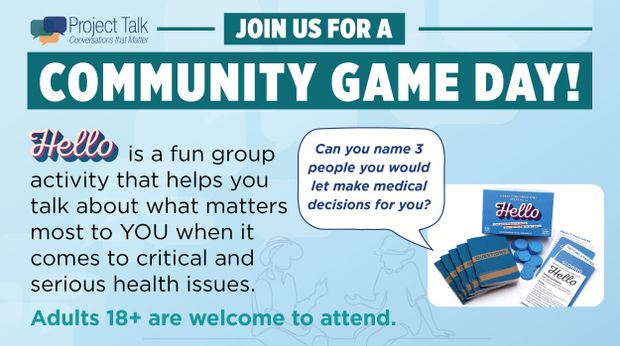By Nikki Shields, LCPC, NCC
Clinical Coordinator of Behavioral Health Therapy
If you’ve tried to schedule an appointment with a therapist lately, you may have been disappointed to learn that instead of setting up an appointment, you were added to a waitlist. Or maybe you were added to a waitlist several weeks ago and still haven’t heard back about scheduling an appointment. What’s the deal!?!
There has been a dramatic increase in referrals to mental health services related to COVID, resulting in longer than normal wait times for these services. The emotional toll of a worldwide pandemic is becoming more visible. Anxiety and stress are at an all-time high for many people as we continue to navigate restrictions, mandates, quarantines, and other related changes outside of our control. Please know that we are working diligently to connect with each and every person that calls our office and we appreciate your patience during this process. We know that it is very frustrating to take the difficult step of asking for help and then being told you have to wait. Frustrating might not be a strong enough word.
Here’s the thing – we still want to help. We’ve compiled some tips and strategies to help you get through this waiting period.
Seek Accurate Information
You can find anything on the internet or social media these days but that does not mean it’s from a trustworthy source. Here are a few websites where you can find accurate mental health information and resources for all ages:
- helpguide.org – research-based articles written by experts on a variety of health-related topics, especially emotional health
- kidshealth.org – articles about a variety of children’s health-related topics, some are even written for children and are available in an audio format
- 211.org – the website for the United Way and a great way to find local resources
Journal/Track Symptoms
Journaling and symptom tracking are powerful mental health tools. Use an app on your mobile device or invest in a new notebook and start writing things down. You can track symptoms, vent about difficult emotions, and record observations of your behavior. All of this will be helpful information to have when you begin therapy. Ideas for specific things to monitor: your symptoms, when they occur, how severe they are, what triggers them, what makes them better, what makes them worse, sleep, food intake, and physical activity level.
Think about Your Goals for Therapy
When you meet with a therapist, he or she will ask you a lot of questions. One of the most important things you will be asked is what you want to get out of therapy. Taking some time to think about your goals and expectations now will help you be prepared to answer these questions in your first visit.
Make a List of Questions for Your Therapist
Keep a list of questions you want to ask when you meet with your therapist. This could include questions about your symptoms and treatment options or about the therapist’s approach and professional experience.
Communicate with Family and Friends
Let those closest to you know you are waiting for mental health services and might need more support for a little while. Try to keep in touch with people that have a positive influence in your life and engage in social activities when possible to reduce isolation while you are waiting to start therapy.
Stay in Contact with Your PCP
Be sure to let your doctor or primary care provider know that you are having a hard time and that you are waiting for a counseling appointment. He or she might have some ideas and will be able to answer questions you might have about medication or other treatment options.
Take Care of Your Basic Needs
- Sleep is critical to mental health. Set your sleeping area or bedroom up to be a soothing and relaxing space. Try to create a bedtime routine where you go to bed and wake up at the same time each day.
- Spend time outside every day, even if only for a few minutes. Nature is both soothing and energizing and we need vitamin D from the sun for general wellness.
- Choose foods that have nutritional value as often as you can. How you eat can definitely impact your mood and skipping meals can result in higher levels of anxiety for some people.
- Physical activity is one of the best ways to combat mental health symptoms like depression and anxiety. Even if you can only commit to a quick 5‑minute walk, your brain and body will thank you.
Look for Support Groups
Support groups can be a great way to connect with other people who are having similar life difficulties as you. Many support groups are held virtually which can make it easier to join and participate.
Consider Other Options if Needed
We understand that sometimes waiting is not in your best interest. If you feel you need to see someone sooner than what we can offer, there are other providers in our area and there are many online/telehealth options to choose from. Start by finding out your coverage options with your health insurance or seek recommendations from your PCP, friends, or family. You might be able to access counseling or supportive services through your employee assistance program or school. Speak with your HR or guidance counselor to find out more.
Develop a Safety Plan
If your symptoms include self-harm behaviors, you may want to create a safety plan with someone you trust and let them know how they can help you stay safe during this time. There are apps and templates available online to help with safety planning.
Seek Emergency Help if You are Experiencing a Crisis
Untreated mental health symptoms can become a crisis. If you’re thinking about hurting yourself or someone else or are feeling unsafe in any other way, you need help immediately. Please seek emergency assistance if you are in a mental health crisis. The National Suicide Prevention Lifeline is available 24 hours a day at 800−273−8255.
Make Plans
Making future plans can help boost mood and optimism. Staying busy and having something to look forward to can help reduce depression and increase feelings of hope. Plan a coffee date with a friend, plan a weekend trip, or just make a plan to watch your favorite movie with a friend or family member.
Try Meditation
Mental health symptoms are exhausting. Meditation is designed to help you take a break from all those thoughts and emotions bouncing around in your brain. Meditation apps teach you how to do this skill and provide a variety of options so you can find a practice that works for you.
Limit Exposure to Social Media
Social media is the primary source of information and mental stimulation for many people today. We turn to it when we are bored, stressed, angry, or lonely. Take control of your social media experience by setting time limits and tailoring your feed so you see more positive and uplifting posts. You can unfollow, block, leave groups, and alter several different settings so that social media does not contribute to your emotional distress.
We are working to get you in as quickly as possible and look forward to the opportunity to collaborate with you on your wellness journey. We hope you will try a couple of these ideas to make your wait more bearable. We will be in touch with you soon!
To learn more about our Behavioral Health services, call us at (217) 222‑6550, ext. 3418.
Health Topics:







